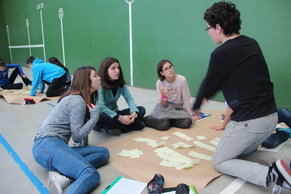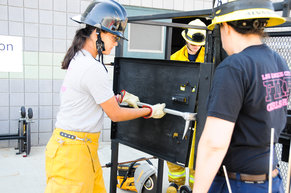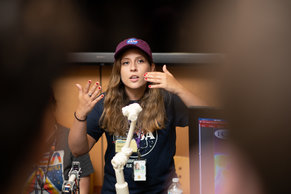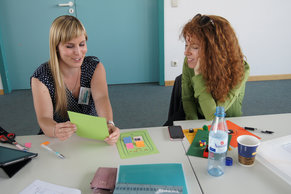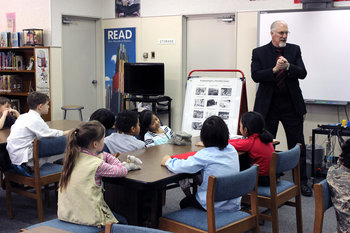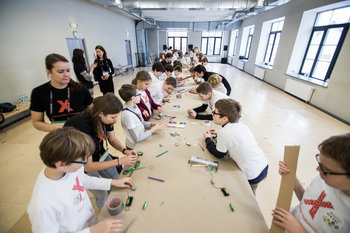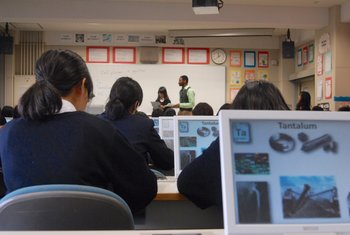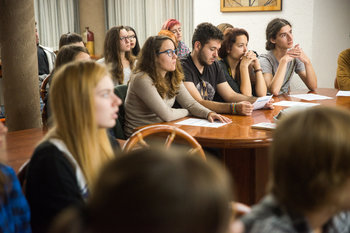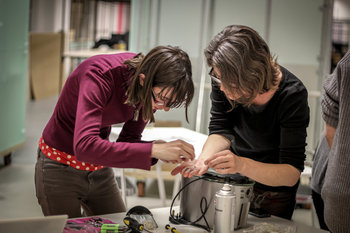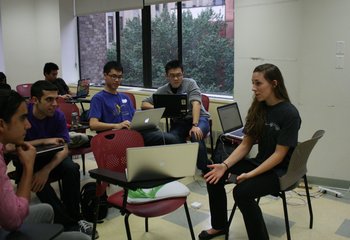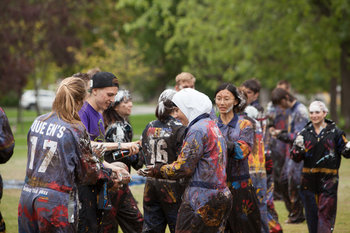Remember
The ability to consume information and spit it back out again.Acquire | Cite |
Define | Demonstrate |
Describe | Distinguish |
Explain | Find |
Identify | Label |
List | Name |
Paraphrase | Read |
Recall | Recognize |
Record | Report |
Reproduce | Select |
Sequence | Show |
State | Tell |
Understand
Comprehension of knowledge such that you can formulate arguments with it.Appreciate | Approximate |
Argue | Articulate |
Associate | Characterize |
Clarify | Compare |
Conceive | Debate |
Defend | Develop |
Differentiate | Discuss |
Elaborate | Express |
Form | Formulate |
Hypothesize | Interpret |
Propose | Review |
Summarize | Visualize |
Analyze & Evaluate
Investigating in a systematic way to develop knowledge independently or as a group effort.Analyze | Appraise |
Assess | Audit |
Blueprint | Break Down |
Chart | Classify |
Compare | Confirm |
Contrast | Criticize |
Critique | Deconstruct |
Determine | Diagnose |
Diagram | Distinguish |
Document | Evaluate |
Examine | Experiment |
Figure Out | Interpret |
Investigate | Layout |
Measure | Process |
Propose | Rank |
Rate | Recommend |
Research | Score |
Scrutinize | Select |
Separate | Standardize |
Structure | Support |
Test | Transform |
Validate | Verify |
Apply & Create
Applying knowledge to solve problems or produce value.Apply | Build |
Calculate | Compose |
Compute | Construct |
Create | Decide |
Design | Develop |
Devise | Estimate |
Frame | Invent |
Make | Modify |
Operate | Optimize |
Predict | Produce |
Solve | Strategize |
Master
Developing talent in a field. This requires learning processes that are more than transactional lessons but a process of coaching and mentoring a student to refine their talents using knowledge of performance and knowledge of results. For example, a music instructor who helps a student refine their talents.Accomplish | Achieve |
Advance | Attain |
Cultivate | Gain |
Improve | Master |
Perform | Polish |
Refine | Succeed |
Character
Observable elements of character can be outcomes of learning. For example, an improv exercise that allows participants to practice and demonstrate adaptability.Accept | Adapt |
Assist | Coach |
Commit | Communicate |
Concentrate | Connect |
Contribute | Cooperate |
Demonstrate Resilience | Empathize |
Endeavor | Endure |
Engage | Focus |
Help | Improve |
Include | Invigorate |
Listen | Meet |
Mentor | Participate |
Persist | Resolve |
Respect | Socialize |
Strengthen | Support |
Venture | Work as a Team |
Cultural Capital
Cultural capital is the ability to influence within the context of a culture. This includes things like social skills, shared experiences and leadership that are common outcomes of education. For example, the experience of playing for a university sports team such that you gain shared experiences within the culture of the sport and school.Advocate | Build Rapport |
Build Relationships | Challenge |
Collaborate | Compete |
Convince | Cultivate Understanding |
Develop Trust | Enjoy |
Experience | Facilitate |
Generate | Immerse |
Influence | Inspire |
Join | Lead |
Motivate | Negotiate |
Pitch | Play |
Present | Promote |
Support | Surround |
Outcome vs Goal
Most attempts to explain the difference between outcomes and goals are nonsense because their isn't much of a difference. For example, it is incorrect to say that outcomes are measurable but goals aren't. Generally speaking, the term goal is most often applied to business and financial targets. Outcome tends to be used when targets are related to human factors such as quality of life.Outcome vs Objective
It is common to have multiple levels of detail for targets. In business, the most common scenario is to have goals and objectives where goals are the high level target and objectives are specific steps towards each goal. In academia, this is often switched around whereby objectives are top level targets and outcomes are related low level targets.| Overview: Learning Outcomes | ||
Type | ||
Definition | Statements of the benefits of a learning activity, session or program. | |
Related Concepts | ||


